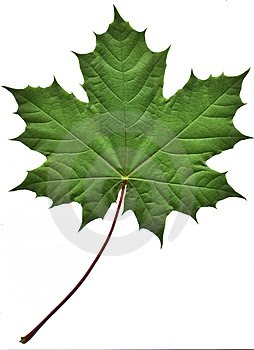
Keta Ghana Fruit Stand - Photo by Peter Schnurman
A friend once told me that India has over 600 varieties of Mango, which must make mango season (March to May) an exciting time of year for mango lovers!!! Here are versions you can find in Hawaii:

In Canada, we mostly get mangoes from the Caribbean, although they sometimes come in from other parts of the world, such as South Asia, Southeast Asia, Africa, USA, Central America and South America.
Nutrients found in Mangoes:
Source: HealthAlternatives2000.com
One mango without peel contains 1.06 grams of protein, 135 calories and 3.7 grams of dietary fiber.
Potassium - 323 mg
Phosphorus - 23 mg
Magnesium - 19 mg
Calcium - 21 mg
Sodium - 4 mg
Iron - 0.27 mg
Selenium 1.2 mcg
Manganese - 0.056 mg
Copper - 0.228 mg
Zinc - 0.08 mg
Also contains small amounts of other minerals.
Vitamin A - 1584 IU
Vitamin B1 (thiamine) - 0.12 mg
Vitamin B2 (riboflavin) - 0.118 mg
Niacin - 1.209 mg
Folate - 29 mcg
Pantothenic Acid - 0.331 mg
Vitamin B6 - 0.227 mg
Vitamin C - 57.3 mg
Vitamin E - 2.32 mg
Vitamin K - 8.7 mcg
Contains some other vitamins in small amounts.
Chart showing vitamins and minerals found in major fruits

Ghana Fruit stand, Photo by Minda
Mango Nutrition and phytochemicals (from Wikipedia):
Nutrients and phytochemicals
Mango, raw
Nutritional value per 100 g (3.5 oz)
Energy 272 kJ (65 kcal)
Carbohydrates 17.00 g
Sugars 14.8 g
Dietary fiber 1.8 g
Fat 0.27 g
Protein 0.51 g
Vitamin A equiv. 38 μg (4%)
- beta-carotene 445 μg (4%)
Thiamine (Vit. B1) 0.058 mg (4%)
Riboflavin (Vit. B2) 0.057 mg (4%)
Niacin (Vit. B3) 0.584 mg (4%)
Pantothenic acid (B5) 0.160 mg (3%)
Vitamin B6 0.134 mg (10%)
Folate (Vit. B9) 14 μg (4%)
Vitamin C 27.7 mg (46%)
Calcium 10 mg (1%)
Iron 0.13 mg (1%)
Magnesium 9 mg (2%)
Phosphorus 11 mg (2%)
Potassium 156 mg (3%)
Zinc 0.04 mg (0%)
Percentages are relative to US recommendations for adults.
Source: USDA Nutrient database
Mango is rich in a variety of phytochemicals and nutrients. The fruit pulp is high in prebiotic dietary fiber, vitamin C, diverse polyphenols and provitamin A carotenoids.
Mango contains essential vitamins and dietary minerals. The antioxidant vitamins A, C and E compose 25%, 76% and 9% of the Dietary Reference Intake (DRI) in a 165 grams (5.8 oz) serving. Vitamin B6 (pyridoxine, 11% DRI), vitamin K (9% DRI), other B vitamins and essential nutrients, such as potassium, copper and 17 amino acids are at good levels. Mango peel and pulp contain other phytonutrients, such as the pigment antioxidants – carotenoids and polyphenols – and omega-3 and -6 polyunsaturated fatty acids.
Mango peel contains pigments that may have antioxidant properties, including carotenoids, such as the provitamin A compound, beta-carotene, lutein and alpha-carotene, polyphenols such as quercetin, kaempferol, gallic acid, caffeic acid, catechins, tannins, and the unique mango xanthonoid, mangiferin,[22] any of which may counteract free radicals in various disease processes as revealed in preliminary research. Phytochemical and nutrient content appears to vary across mango species. Up to 25 different carotenoids have been isolated from mango pulp, the densest of which was beta-carotene, which accounts for the yellow-orange pigmentation of most mango species. Peel and leaves also have significant polyphenol content, including xanthonoids, mangiferin and gallic acid.
The mango triterpene, lupeol, is an effective inhibitor in laboratory models of prostate and skin cancers. An extract of mango branch bark called Vimang, isolated by Cuban scientists, contains numerous polyphenols with antioxidant properties in vitro and on blood parameters of elderly humans.
Wikipedia page about Mangoes, mango types, nutrition in mangoes
Mango causes apoptosis in breast and colon cancers
According to research from Texas A&M University's AgriLife Research department, mangoes have great potential for maintaining good health and preventing illness:
Food scientists Dr. Susanne Talcott and her co-researcher husband, Dr. Steve Talcott, used the five varieties of mangos (Kent, Francine, Ataulfo, Tommy/Atkins and Haden) most common in the US and specifically tested polyphenol extracts from the fruit on colon, breast, lung, leukemia and prostate cancer cells. Polyphenols are natural substances in plants that are antioxidants with the potential to protect the body from disease. The Talcotts zeroed in on evaluating polyphenolic compounds in mangos known as gallotannins, a class of natural bioactive compounds believed to help prevent or block the growth of cancer cells.
The results? The Talcotts' experiments showed that the mango extract demonstrated some cancer fighting ability when tested on lung, leukemia and prostate cancer cells. But when tested on the most common breast and colon cancers, mango compounds were found to have even stronger anticancer abilities. In fact, the mango extract caused the breast and colon cancer cells to undergo apoptosis -- programmed cell death.
"Additionally, we found that when we tested normal colon cells side by side with the colon cancer cells, the mango polyphenolics did not harm the normal cells," Dr. Susanne Talcott said in a statement to the press. "That is a general observation for any natural agent, that they target cancer cells and leave the healthy cells alone, in reasonable concentrations at least."
The researchers documented that the cancer cell cycle (the division process cells go through) was interrupted by mango extract. This is crucial information, Suzanne Talcott said in a press statement, because it could explain a possible mechanism for how the cancer cells are prevented or stopped by phytochemicals in mangos. "For cells that may be on the verge of mutating or being damaged, mango polyphenolics prevent this kind of damage," she explained.
Full article on mango preventative health on Natural News.com, mangoes prevent illness

Accra Ghana Fruit Stand, by CapnMikesPhotos
















No comments:
Post a Comment